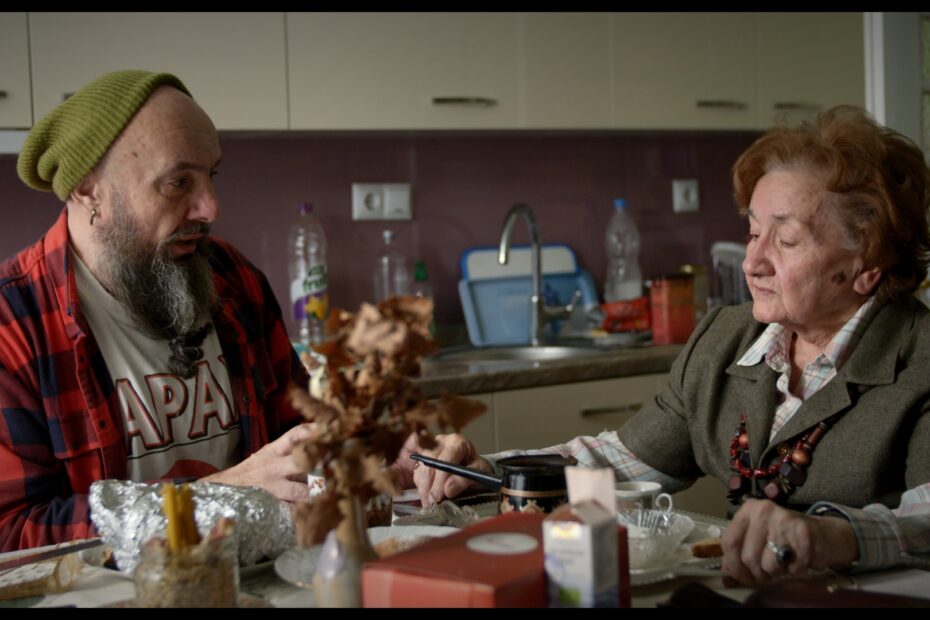Srđan Jevđević, before he became a guru, was a multitude of different personas. Some remember him for pop hits like “Mače moje čupavo,” which he released in his first incarnation as Đino Banana; others for his role in the legendary wartime theatre play “Hair” and his work in besieged Sarajevo; others spent years wilding out with Kultur Shock and singing with frontman Srđan Jevđević; and the youngest audience has had the chance to meet Grandpa Guru, an experienced musician who, with his bandmates, combines various cultural and artistic traditions to present music to audiences that they can enjoy even if they don’t think about all these factors.
Musical documentaries are becoming increasingly prevalent in our artistic scene. Searching for interesting individuals, creators often turn to musicians who, due to their popularity, can very accurately reflect the changes in the society they work in, as well as the passage of time. The story of Srđan Jevđević takes this to the next level. His life is not only divided along the temporal scale of “before the war – the war – after the war” but also along the spatial scale of “Sarajevo – Seattle – return to the Balkans.” A career spanning 40 years allows us to understand how circumstances enable an artist to mature, but also force him to seek new ways to express himself and thus connect with the audience. When we think about it, don’t we all become a bit of artists and masters of improvisation when circumstances demand it? At the same time, it’s interesting to examine the differences and similarities in the lives of people in the Balkans and in the “land of dreams.” If judged by Jevđević’s story, it seems there are no differences as long as you carry your dreams with you.
Mirošničenko approaches the direction of this film with great care. The task before him was daunting from the start—how to portray the entire life of a very agile man without making the film appear as a series of meaningless digressions that should have been separate films? Mirošničenko finds an almost musical solution—rhythm. From the beginning, through precise editing, the director tells a story that combines documents, the main character’s confessions, and the music he was creating at the time. As surprising new chapters unfold, he adjusts the rhythm to match the rhythm of the times, making the film gradually accelerate into the eclectic mix so characteristic of Kultur Shock’s music. Each time Jevđević gets back on his feet against others’ expectations or suddenly decides to change direction, the film does it with him. This approach keeps you on the edge of your seat until the very end, waiting to find out what happens next if you’re not already familiar with the story you came to see.
If you already know the story of Srđan Jevđević, this film won’t surprise you, but the way it is done will allow you to enjoy and see everything from a new perspective.




